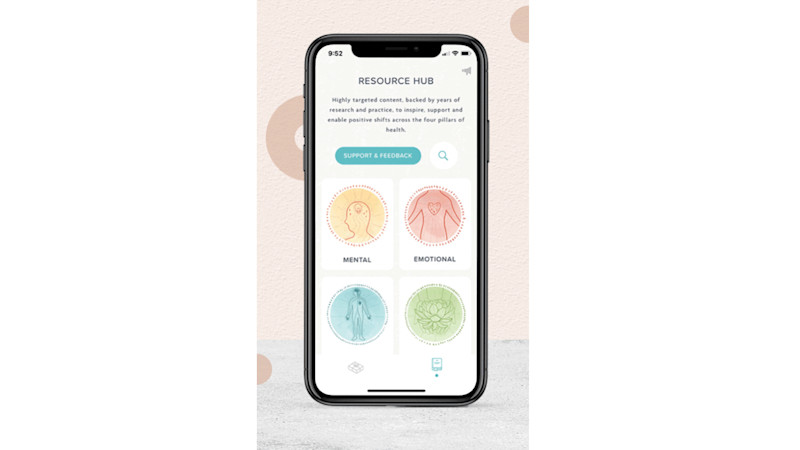An Anatomy of a Self-Care App: Living Ashram
Self-care services have become a hefty industry in their own right. Check out our interview with Living Ashram to learn more about the industry and the gap for a more research-based integrated service.

“Self-care” services have become a hefty industry in their own right. Whether it’s putting on a facemask and setting up a bubble bath or getting a hot yoga class in before work, self-care has become an important ritual both in and outside the workplace to prevent and deal with burnout, stress, and other health issues. Meditation apps Calm and Headspace alone said they had some 40 million downloads each.
Living Ashram, which launched in the UK in 2016, told The Org in an interview that while the industry is thriving, there is a gap for a more research-based integrated service to “equip people with the tools” (resource hubs, audio clips, articles, etc.) towards self-care. The company offers a digital well-being app equipped with a resource hub and guided practices for meditation, breathwork, and mindfulness. Customised solutions for both individuals and businesses are also available.
Founder Annabel Wilson defines self-care as the ability to consistently “treat ourselves with unconditional compassion and acceptance, meet our emotional needs,” while being able to “release and forgive hurt and suffering.”

She originally set up Living Ashram after personally feeling “overwhelmed from the quest for well-being” and finding that not enough accessible and practical options in the well-being community were available. While traditional self-care apps may focus on one aspect of self-care (e.g.: meditation, breathing, mindfulness), Wilson says that the key in setting up Living Ashram was making sure that a cross-disciplined team was in place to bring in expertise from every corner.
Wilson’s team and advisory board pride themselves on their positional diversity. A combination of neuroscientists, psychotherapists, nutritionists and breathwork experts all work on Living Ashram’s simple approach; they’ve tried it all, so you don’t have to.
As someone who has spent a lot of time trying to find apps and services that work for her, Wilson also says the team has to bring forth the right combination of efforts and skills to meet market users’ needs. According to the company’s website, there’s no stone that goes unturned in their search for mental well-being. The team has researched integrative nutrition energy psychology, channelling energy fields, therapeutic fasting, and shamanism - just to name a few.
The idea of self-care being an “industry” may seem a little odd - after all, something that we imagine to be rooted in giving up materialism and focusing on the inner self doesn’t feel like it should be a profitable product. However, self-care’s profitability draws in part from the fact that it’s not well-defined, taking into it health and fitness products, meditation/relaxation apps, personal care and beauty items, as well as relaxation retreats and services.
Wilson believes that the future of the industry is set to be “much more integrated,” by using a “whole human approach to health and wellbeing that encompasses mental, emotional, physical and spiritual health.” She also thinks we will be seeing a “move away from endless statistics and measurements that lose sight of the whole human in the data” and “more integration of AI and big data, for diagnosis and prevention of chronic diseases.”
In that, it’s possible that in the future, self-care apps will move away from helping us find moments of calm in the storm, but rather help us by working towards long-term health benefits. This is what Wilson means when she refers to the app as being a tool for growth, which can present data in a helpful, holistic way.
According to Wilson, the popularity of self-care apps can largely be attributed to people’s gradual understanding of the long-term effects of poor work-life balance and stress - something that, as we get busier and the lines between the office and the home become increasingly blurred, may continue to evolve.
“The proliferation of wellbeing products and services, access to information, and the de-stigmatisation of mental health concerns and issues have all contributed to the boom,” she adds. “The global events of 2020 have only served to highlight and amplify issues that were already present across all segments of society.”
--
The Org is a professional community where companies can show off their team to the world. Join your company here to add yourself to the org chart!
In this article


The ÂÜŔňÂŇÂ× helps
you hire great
candidates
Free to use – try today
